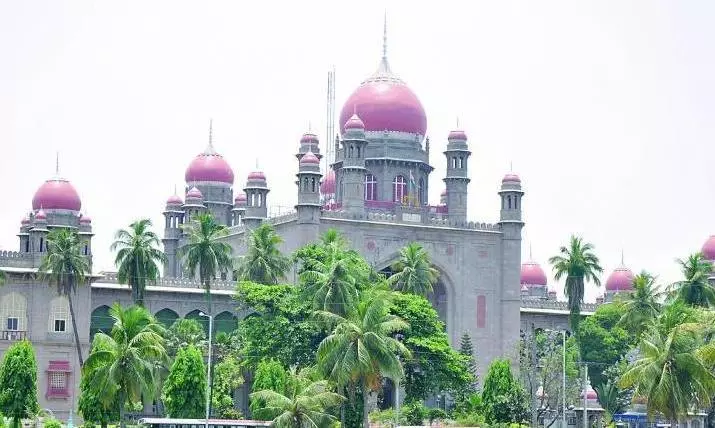HC: Will not step in when there are other remedies

Hyderabad: A two-judge panel of the Telangana High Court reiterated the principle that the availability of an alternative remedy should normally inhibit the High Court from entertaining a writ petition.
A panel comprising Chief Justice Alok Aradhe and Justice N.V. Shravan Kumar dismissed a writ petition filed by Sai Hemaja Aerobricks Pvt. Ltd and two others challenging the orders of the State Bank of India (SBI) in obtaining an order from the 11th Additional Chief Metropolitan Magistrate and taking symbolic possession of a secured asset. The writ petition was contested primarily on the ground that the petitioner had an alternative remedy, and could move the Debt Recovery Tribunal.
It was the case of the petitioner that it could not have moved the tribunal. The panel speaking through Chief Jusitce Aradhe referred to the power under the Debt Recovery Tribunals Act and the Securitisation and Reconstruction of Financial Assests and Enforcement of Security Interest Act, 2002 (Sarfaesi Act).
The bench held that the inhibition under Section 14 (3) of the Act which stated that no act of Chief Metropolitan Magistrate or District Magistrate or any officer authorised by the Chief Metropolitan Magistrate or District Magistrate done in pursuance of this section shall be called in question in any court or before any authority, does not apply to the debt recovery tribunal as the Debt Recovery Tribunal under the Sarfaesi Act is neither a court nor an authority.
Therefore, the bar contained in Section 14(3) of the Sarfaesi Act does not apply to a remedy provided before the tribunal under Section 17 of the Sarfaesi Act. The bench accordingly dismissed the writ petition and relegated the petitioners to take recourse to the remedy under Section 17 of the Sarfaesi Act.
HC to hear plea by toddy tappers
Justice B. Vijaysen Reddy of the Telangana High Court took on file a writ plea challenging inaction in bifurcating the Toddy Tappers Cooperative Society (TTCS). The judge is dealing with a writ plea filed by D. Rajashekar Goud and others.
It was the case of the petitioner that the district prohibition and excise officer-cum-excise superintendent had failed to consider their representation made on April 20 for the division and bifurcation of TTCS and in not registering the new society for Doddalonipally, Mahbubnagar. He would contend that non-grant of license under the TFT Scheme was illegal and arbitrary. The judge wondered how a writ petition was filed within two weeks of making a representation to the authority. However, the judge posted the matter to June 5 and directed counsel appearing on behalf of the state government to seek instructions in the matter.

